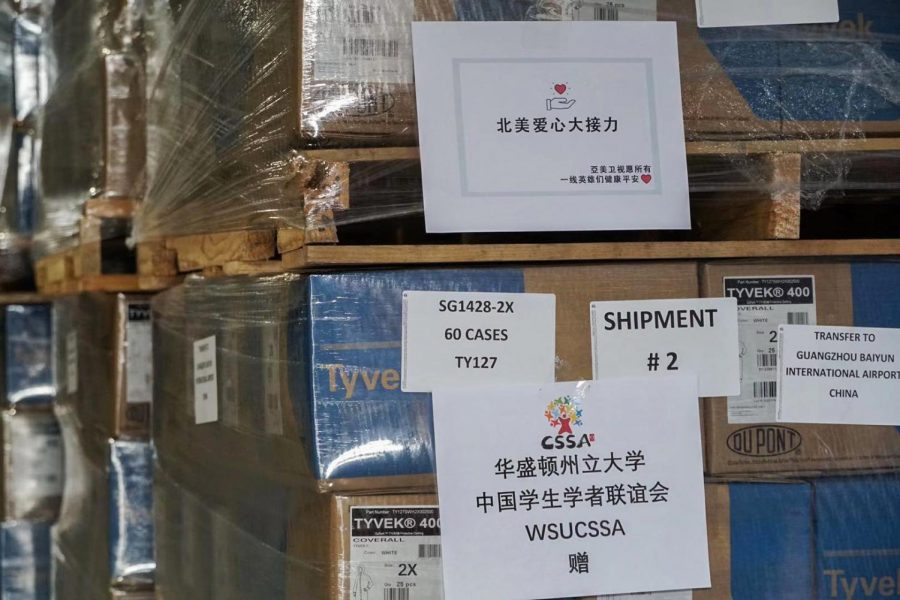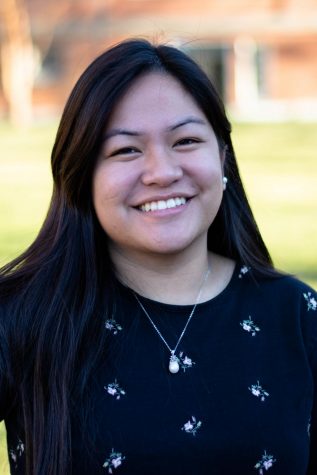Student group ships medical gear to China
The Chinese Students and Scholars Association provides medical relief aid for China
Many members of the Chinese Students and Scholars Association at WSU are worried for their loved ones in China affected by the coronavirus.
February 18, 2020
For the past 70 days, Zhuocheng Huang had to adjust his sleep schedule to accommodate charity workers in China, which is 16 hours ahead of Pullman. After the coronavirus outbreak, Huang said he felt the urge to help his country by shipping medical gear to those working in hospitals.
“Wuhan is [a] closed city,” said Huang, president of Chinese Students and Scholars Association (CSSA). “If the city is closed, that means it’s … serious.”
On Jan. 24, Huang wanted to start a Supporting Wuhan campaign at WSU. He decided to partner with the CSSA organization at University of Washington instead as they were already in the process of filing paperwork needed to send medical gear to China.
Both CSSA organizations partnered with non-university affiliated groups to send packages on Jan. 26 to China, he said. CSSA at WSU contributed to sending a total of 400 protective suits.
Out of the 400 suits, Huang said CSSA member Yinian Yang contributed $500 of his own money, which equated to 125 suits.
Yang said his hometown is far away from Wuhan, yet his city had about 50 reported cases of the virus. Yang thought about what would happen if the outbreak occurred in his town and he knew other people would try to help, he said.
“I want to do my best to help them,” Yang said.
Huang said they chose to send protective suits because it is becoming more difficult to purchase protective face masks, especially for medical staff.
“Everyone’s trying to buy,” he said.
Huang said packages have been sent to Zhejiang, Hubei, Shanxi, Hebei and Shandong Province, as well as Changsha, Shengyang and Chongqing City. CSSA plans to continuously send packages “until all the suits are sold out,” he said.
Huang said he remembers when he first heard the news about the outbreak.
“The Wuhan government said, ‘This disease is under control, everything’s fine, don’t worry about it,’” he said. “At that point, I feel like … something went wrong.”
After the outbreak doctors and nurses would work about 10 to 12 hours a day, Huang said. He thought raising medical gear for them would be the most helpful contribution he can make.
Huang said his family lives in a city near Wuhan. People in his town can reach Wuhan in about one and a half hours.
“I was worrying about my family,” he said.
Huang’s mother has a chronic disease and has to visit the hospital every week, he said. Doctors and nurses have the most direct contact with patients, and some of them are prone to carrying the virus.
“I’m still worried about her,” he said. “I hope she’ll be fine.”












